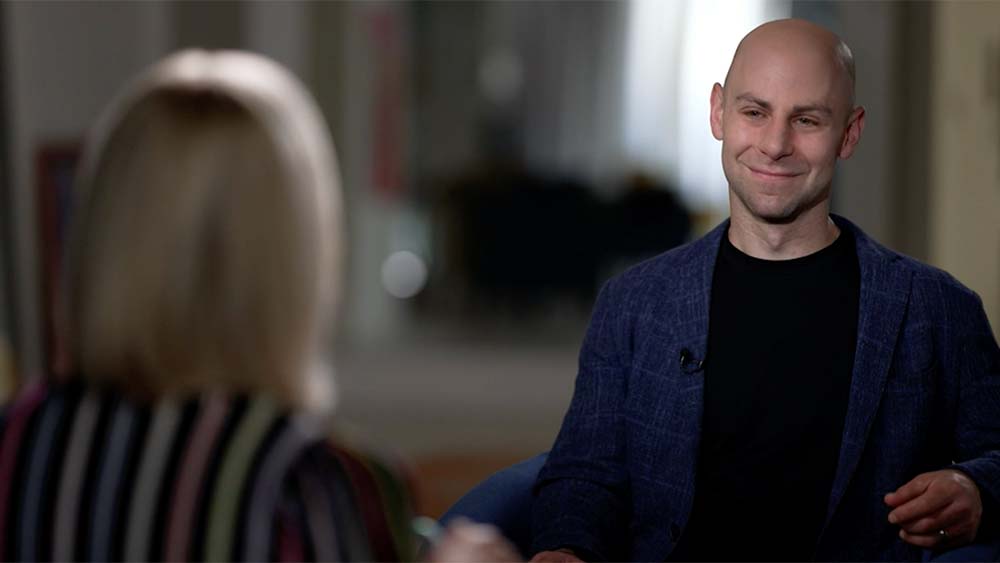
PBS’s “Firing Line” host Margaret Hoover interviews organizational psychologist and Convening Leaders keynote speaker Adam Grant.

Michelle Russell
While reading an article online in Scientific American recently, I was served an ad for the first annual Global Scientific Conference on Human Flourishing — an example of marketing an event directly to consumers. The idea of human flourishing as a scientific study piqued my curiosity. I clicked on the ad.
Human flourishing, according to humanflourishing.org, means you’re on a journey toward a life that is holistically good, encompassing physical and mental well-being, finding fulfillment through relationships and bonds, and living with purpose and character. It may sound aspirational in a squishy way, but Templeton World Charity Foundation, which is hosting the complimentary virtual event on Nov. 29-30, says that scientists have demonstrated that it is possible to empirically measure and study flourishing in its different dimensions. One goal of the conference is to put insights about how and why humans flourish into practical applications, like tools for listening and learning in a polarized world.
“Flourishing” is an antonym for the word that Wharton organizational psychology professor — and Convening Leaders 2023 keynote speaker — Adam Grant used to describe the national mood in 2021. In what turned out to be the most popular article published on The New York Times website last year Grant said we were “languishing,” feeling somewhat joyless and aimless after a year of COVID.
Are we still languishing? That’s the question PBS’s “Firing Line” host Margaret Hoover asked Grant in a recent episode. Yes and no, he said. Quite a few people are still languishing, he said, in part because of current global circumstances, but also because feeling stagnant is part of the human condition. He said, however, that we’re starting to see the tip of “post-traumatic growth, which is this idea of not just bouncing back but bouncing forward. Where people say, ‘I wish that hadn’t happened but because I’m stuck with it, I’m going to walk away stronger … and I’m going to have a new sense of possibility and purpose.’”
I love that idea of bouncing forward with a sense of possibility, because for us to think that we can predict future events with unfailing certainty — or even a high degree of probability — seems foolhardy. And in that spirit, after a two-year break, we bring you our events industry forecast, with insights from the travel, lodging, exhibitions, and event tech sectors, and new this year, the hybrid workplace. The research we’ve culled charts a murky path forward for business events — there are more contradictory indications about what’s next than in pre-COVID forecasts.
We also included our own data as part of the forecast — the results of a Dashboard survey that we conducted in October. Here’s one hopeful gem from that: Twenty percent of event professional respondents — compared to only 8 percent in May — said they were feeling inspired and creative. I think Grant would call that a sign of post-traumatic growth.
Food Matters
The scientists who study human flourishing should take a look at Jiwon McCartney. As the founder of Fight2Feed, a Chicago grassroots food recovery nonprofit that has rescued more than 3 million pounds of food and served nearly 800,000 meals, McCartney embodies the definition of human flourishing: finding fulfillment through relationships and bonds and living with purpose and character. Deputy Editor Barbara Palmer shares her story in the November Social Impact series.
Michelle Russell is editor in chief of Convene.
